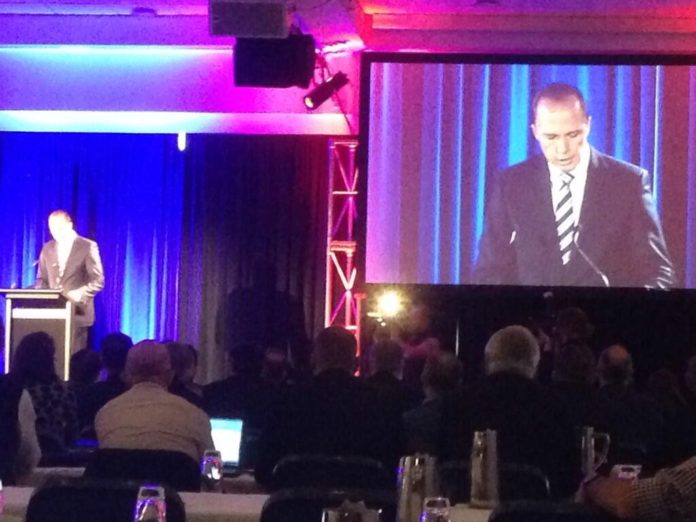
Federal Health Minister Peter Dutton has attempted to sell his government’s budget to the medical profession, warning Medicare will collapse under its own weight unless change is made, and that bulk billing was never intended to be a drawcard to attract patients to practices.
Mr Dutton spoke at the Australian Medical Association national conference in Canberra on Friday, where he spruiked the budget and said the government was asking people to take more personal responsibility for their health, through a “modest” and “fair” contribution to the cost of their care.
He said GPs asked for contributions from about one in five patients and a lot of the “free” services were being provided to people who were not on low incomes.
“Bulk-billing was intended to be for patients who could not afford to pay a full fee, it was not intended to be a drawcard to attract patients from one practice to another,” Mr Dutton said.
Mr Dutton said the government would “in due course” begin discussions with crossbench MPs about the $7 co-payment.
“Most Australians want a strong Medicare going forward and if you want a strong Medicare going forward, you have to support the changes the government is proposing and I think Australians will say to the independents that they want them to support a strengthening of Medicare and that’s what the government is proposing here,” he said.
“We’re increasing spending every year here into Medicare, we are retaining bulk-billing and we are saying to all Australians that we want to strengthen and modernise Medicare. If we do that, we can have a world-class health system going forward and I think that’s why the independents will support the legislation that the government puts forward.”
Mr Dutton warned Medicare would “collapse under its own weight” unless there was change.
“Healthcare is never ‘free’. Someone has to pay and it is better that we have a discussion about the way in which people contribute,” he said.
Mr Dutton said the government was not introducing the changes to be politically popular but to “strengthen Medicare and make it sustainable into the future”.
Labor’s health spokeswoman Catherine King also spoke at the conference, labelling the co-payment a tax and a “fundamentally stupid health policy”.
“At a time when the population is ageing and the rate of chronic illness is increasing, it seems inconceivable that the government would want to make some of the changes that it appears intent to, particularly those that place a barrier in the way of people accessing primary care,” she said.
“The measures in the budget, including the cuts to agreements with the states on public hospital funding, and some of the broader proposals which the government has been flagging in the area of private health insurance, cuts the thread that binds Medicare together – universal access.”
Mr Dutton said much of the commentary about changes to public hospital funding was “dead wrong” and the government was increasing the Commonwealth’s contribution to state and territory owned and managed public hospitals by more than 9 per cent a year over the next three years.
But the government would not provide “open-ended funding guarantees for inefficient and unrestrained growth”, he said.
“We will continue to pay efficient growth funding until 2016-17 and then, from 2017, we will provide an indexation factor which is equivalent to CPI and population growth,” he said.
“That is not cutting spending. That is providing a fair and reasonable margin for growth in the short term, and a strong incentive for the states to work harder on efficiency in the medium term.”
It is estimated doctors’ visits will drop by about 1 per cent as a result of the $7 co-payment in its first year, which equates to more than 2 million doctors’ visits or tests.
AMA president Steve Hambleton said although the organisation was not opposed to people contributing to their healthcare costs, there remained concerns about the impact it would have on low-income earners, Aborigines and Torres Strait Islanders, people with serious mental illness or dementia, and the aged.
Dr Hambleton said there would be no gain to practices from the co-payment because of the added burden of administrative costs, but “what it would do is make people think twice about going to the doctor”.
Source: Canberra Times
